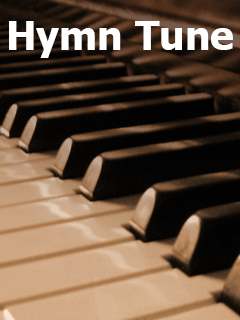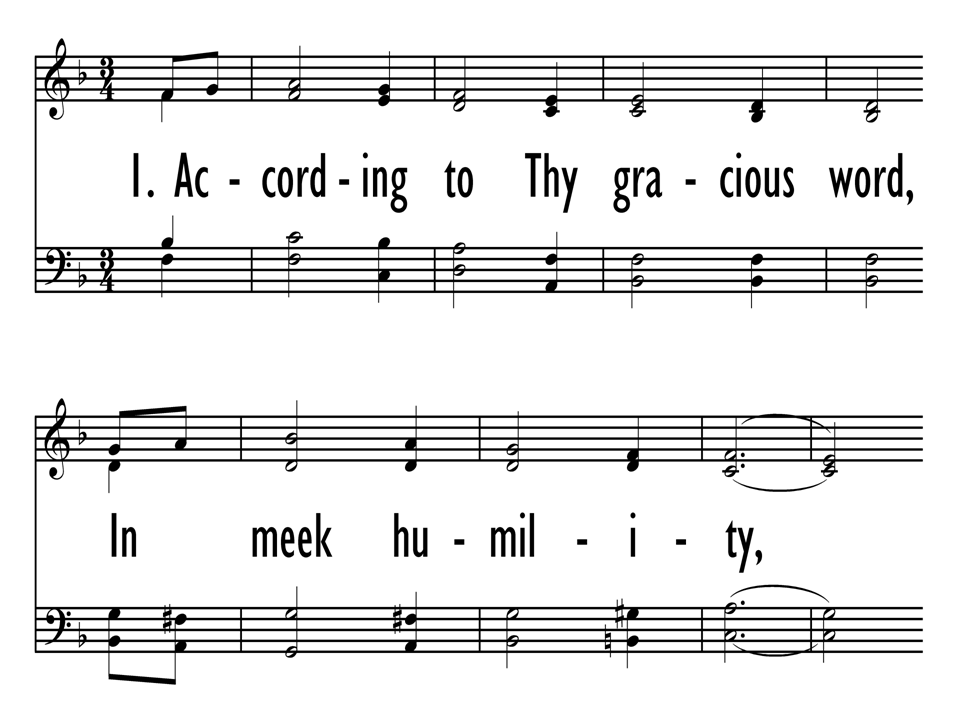- |
User Links
BANGOR (Tansur)

BANGOR (Tansur)
Composer: William Tans'ur (1734)Published in 97 hymnals
Printable scores: PDF, MusicXML
Audio files: MIDI, Recording
Composer: William Tans'ur
 William Tansur, b. about 1700, Dunchurch of Barnes; d. 1783, St. Neots Evangelical Lutheran Hymnal, 1908
Also known as Tansur; Tanzer; le Tansur Go to person page >
William Tansur, b. about 1700, Dunchurch of Barnes; d. 1783, St. Neots Evangelical Lutheran Hymnal, 1908
Also known as Tansur; Tanzer; le Tansur Go to person page >Tune Information
| Title: | BANGOR (Tansur) |
| Composer: | William Tans'ur (1734) |
| Meter: | 8.6.8.6 |
| Incipit: | 53215 17655 56765 |
| Key: | c minor |
| Source: | Harmony of Zion, 1734;W. Tans'ur's Compleat Melody (1735) |
| Copyright: | Public Domain |
Alternative Tunes
Notes
Traditionally used for Montgomery's text and for Peter Abelard's "Alone Thou Goest Forth, O Lord," BANGOR comes from William Tans'ur's A Compleat Melody: or the Harmony of Syon (the preface of which is dated 1734). In that collection the tune was a three-part setting for Psalm 12 (and for Psalm 11 in a 1738 reprint). Possibly alluding to an earlier origin, the tune title recalls the Welsh borough and city Bangor. The tune was popular in Scotland: Robert Burns refers to it in his poem 'The Ordination": "an' skirl up the Bangor."
BANGOR is a solemn but expressive tune, though not mournful. It is sturdy and supportive of the classic anamnesis interpretation of Montgomery's text. Sing in harmony on stanzas 1 through 4, and sing in unison on stanza 5–or try singing the first three phrases in harmony and the fourth in unison to highlight the important concluding phrase in each stanza.
Tans'ur (originally Tanzer; b. Dunchurch, Warwickshire, England, 1706; d. St. Neots, Huntingdonshire, England, 1783) was an itinerant music teacher and song leader who served as occasional organist in churches in Barnes, Ewell, Cambridge, Stamford, and Boston (England). Later he lived in St. Neots, where he was a bookseller and music teacher. He published numerous pedagogical works on music as well as psalm books, including A Compleat Melody: or Harmony of Syon (1734), The Psalm Singer's Jewel (1760), and Melodia Sacra (1771); many of his books were reprinted numerous times. It is not always clear which tunes in these collections Tans'ur composed himself or which he adapted from other sources. A selection from his tunebooks was published in the United States as The American Harmony (1771), a book that influenced William Billings in his composing of psalm tunes.
--Psalter Hymnal Handbook, 1988
Timeline
Arrangements
Harmonizations, Introductions, Descants, Intonations
|
Organ Solo
|
Media
The Cyber Hymnal #14
Text: Alas! By Nature How DepravedThe Cyber Hymnal #1330
Text: Eternal God, We Look to TheeThe Cyber Hymnal #1569
Text: The Foes of Zion Quake for FrightThe Cyber Hymnal #2363
Text: Hark! from the Tombs a Doleful SoundThe Cyber Hymnal #2569
Text: How David, When by Sin DeceivedThe Cyber Hymnal #4899
Text: O God of Mercy, Hear My CallThe Cyber Hymnal #5553
Text: O Zion, Open Wide Thy GatesThe Cyber Hymnal #6946
Text: Terrible Thought! Shall I AloneThe Cyber Hymnal #7161
Text: Why Doth the Lord Stand Off So Far?The Cyber Hymnal #8568
Text: Father And Canst Thou Me Receive?The Cyber Hymnal #8876
Text: The Spring, Great God, At Thy CommandThe Cyber Hymnal #9474
Text: Long Has Divine Compassion StroveThe Cyber Hymnal #9516
Text: See, Gracious God, Before Thy ThroneThe Cyber Hymnal #9795
Text: Dear Lord! Behold Our Sore DistressThe Cyber Hymnal #16118
Text: Great God, The Terrors Of Thy WrathPsalter Hymnal (Gray) #298
Text: According to Thy Gracious Word- MIDI file from Christian Classics Ethereal Hymnary #1067
- MIDI file from Christian Classics Ethereal Hymnary #1067
- MIDI file from The Cyber Hymnal #14
- MIDI file from The Cyber Hymnal #1330
- MIDI file from The Cyber Hymnal #1569
- MIDI file from The Cyber Hymnal #2363
- MIDI file from The Cyber Hymnal #2569
- MIDI file from The Cyber Hymnal #4899
- MIDI file from The Cyber Hymnal #5553
- MIDI file from The Cyber Hymnal #6946
- MIDI file from The Cyber Hymnal #7161
- MIDI file from The Cyber Hymnal #7921
- MIDI file from The Cyber Hymnal #8568
- MIDI file from The Cyber Hymnal #8698
- MIDI file from The Cyber Hymnal #8876
- MIDI file from The Cyber Hymnal #9474
- MIDI file from The Cyber Hymnal #9516
- MIDI file from The Cyber Hymnal #9795
- MIDI file from The Cyber Hymnal #12576
- MIDI file from The Cyber Hymnal #16118
- MIDI file from Psalter Hymnal (Gray) #298
- MIDI file from Psalter Hymnal (Gray) #298
- Audio recording from Small Church Music #1470
- Audio recording from Small Church Music #1470
- Audio recording from Small Church Music #7291


 My Starred Hymns
My Starred Hymns





